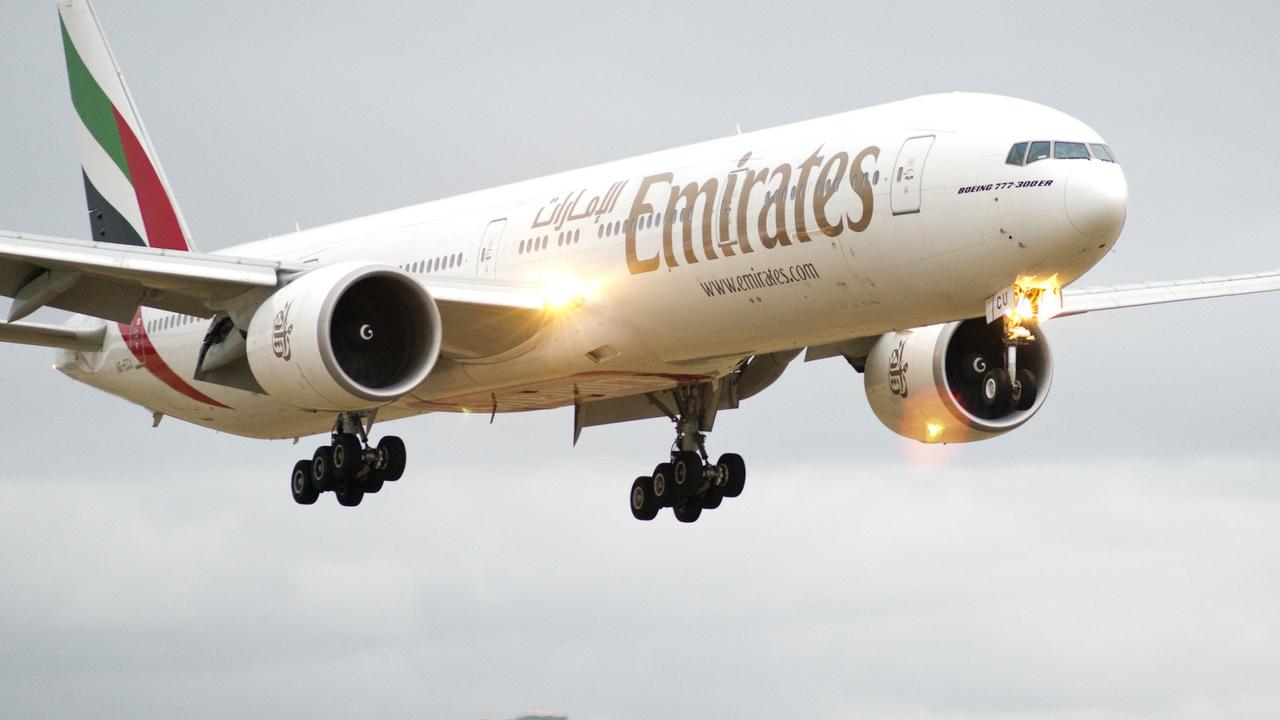UN-sponsored talks to resume, optimism in the air over return to island paradise in Cyprus
THE white beaches and turquoise waters are inviting, but this place is off limits. Nobody’s been allowed in for 40 years.
FORTY years ago this was a thriving tourist town, one of the most popular resort destinations in the Mediterranean.
It was famous for its turquoise waters and white sand and frequented for its night-life. It was inked in the travel diaries of Hollywood’s elite.
Today the beaches are empty. So too are the hotels that line the sandy foreshore. The beach is fenced off using corrugated iron and barbed wire. Signs litter the roads around the beach reading “No Man’s Land”, “STOP” and “No Photos Allowed”.
Varosha, on the east coast of Cyrpus, was abandoned in a hurry during an invasion in 1974. Locals said they expected to return within a week but over 40 years on they are still locked out.
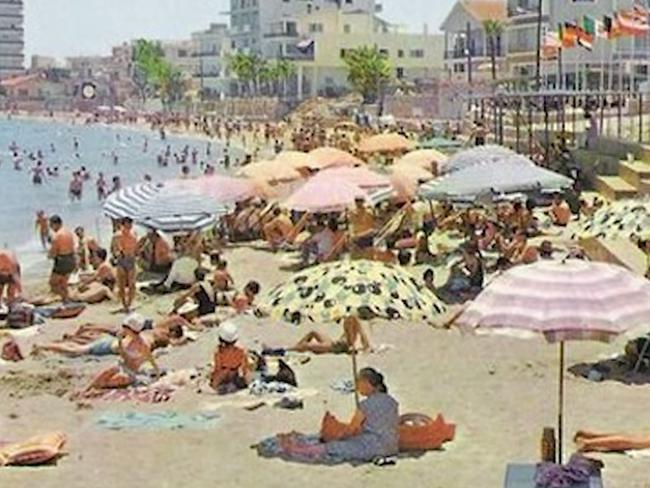
ISLAND PARADISE FROZEN IN TIME
Cyprus is beautiful but it’s also divided. Turkey lays claim to some of the land and so does Greece. Forty years ago those divisions came to a head.
In July, 1974, Turkey invaded. Almost 40,000 people fled to the south. Sensing their opportunity, Turkish forces fenced off high-rise hotels, 14th-century churches and the beautiful beaches once visited by movie stars including Brigitte Bardot, Elizabeth Taylor, Paul Newman and Sophia Loren.
When summer rolls around, there’s nobody there. Paradise is being wasted and, despite efforts to come together, the two parties fail to see eye-to-eye.
That could change in the coming weeks when UN-sponsored talks between Greek Cypriots and Turkish Cypriots resume.
On one side of the fence, literally, is the Turkish representative Mustafa Akinci. On the other side is his Greek counterpart Nicos Anastasiades. Speaking with reporters last week, the latter said the two parties are “on the same track” and share a “mutual understanding”.
Mr Akinci said it could be a “matter of months, rather than years” before the gates are flung open and tourists are welcomed back to Varosha. Experts say that’s wishful thinking.
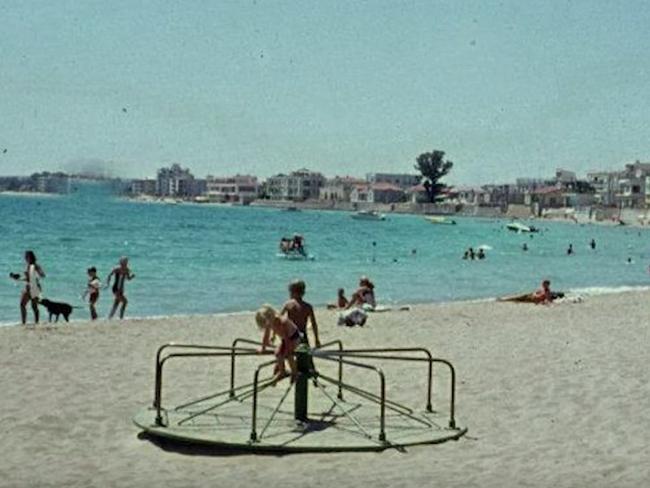
‘IT WAS WAR, THIS WAS A WAR’
Michalis Michael was 14 when war came to Varosha. He remembers the Turkish warships off the coast and the panic people felt. The La Trobe University academic now lives in Australia where he is regarded as the foremost expert on Greek and Cyprus politics.
He says he hopes discussions lead to a beneficial outcome for both parties but he knows there is plenty of work to be done.
“The Cyprus talks began in the late ‘60s and early ‘70s. There was a civil unrest. It led to people getting killed, but as a kid I remember thinking these things would be resolved,” Dr Michael told news.com.au. Then the war came.
“It was a war, there were the Turkish air force bombarding strategic sites, I remember fleeing into the mountains, people abandoning cities. It was war and people were scared.”
Dr Michael has been back to Cyrpus since. He visited Varosha and believes if people do return it will need to be bulldozed. The hotels are run down and the town has been devastated.
He admits talks have been positive but knows there are huge hurdles to overcome before anybody can even consider reopening paradise.
“There’s been an optimism that this time might be the time for coming to agreement because for the first time you have the most conciliatory politicians. If these two can’t resolve it it’s hard to see who can. Goodwill is there, there are positive statements. It’s crunch time ... but stumbling blocks are still there.”
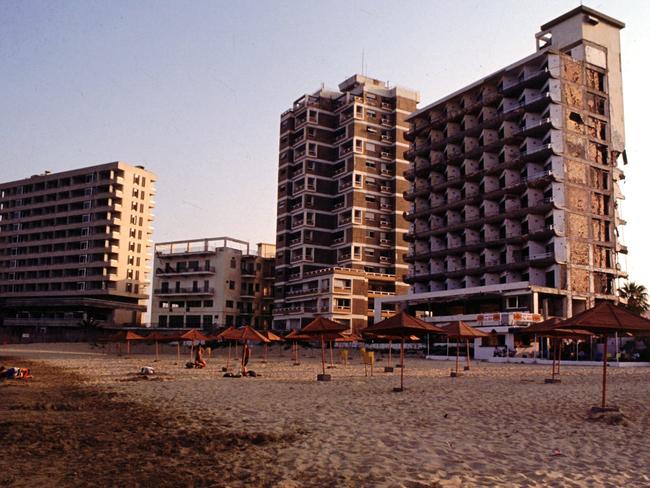
LIFE IS MISERABLE, THIS IS CAPTIVITY
Serdar Atai, who lives not far from the abandoned resort town, said life is miserable. What used to be a happy place to live is now “captivity”.
Mr Atai told the Telegraph: “They promised everything would be OK, but our future is captive. Can you imagine this trauma? It’s a big load for people who live here. They wake up to a dark horizon.”
The New York Timesspoke with Costas Apostolides, a former officer at the Cypriot Planning Bureau. He said the island had so much potential and still does.
“With the best beach in the Mediterranean, Varosha is like Copacabana. It’s huge. Opening it up again could by itself rejuvenate the entire island’s economy.”
The economy could use a boost. According to the Times, the Republic of Cyprus went into “financial meltdown”. Businesses shut their doors and Cypriots were forced to use their own savings to prop up banks. Just as Greece went into a downward spiral, so too did Cyprus.
The European Central Bank and the International Monetary Fund imposed austerity measures on the population and employment suffered miserably. Mr Atai said youth unemployment is around 40 per cent.
“Many young people go abroad to find work, and often they don’t come back.”
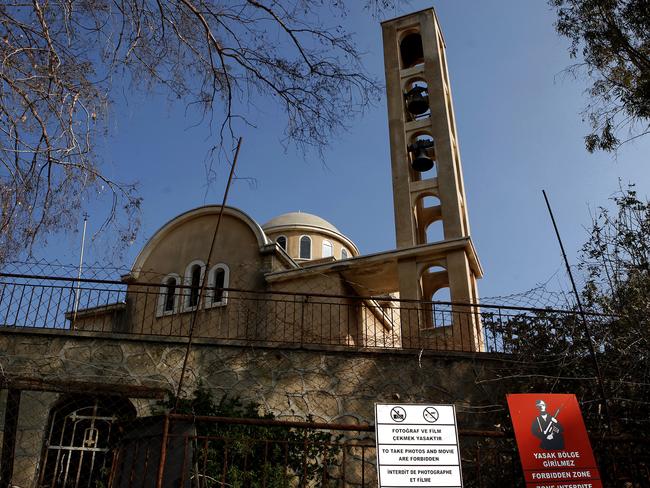
AN ANNUAL EVENT TO MARK WHAT COULD’VE BEEN
Victoria Hislop, a journalist with the Telegraph, visited Varosha and wider Famagusta last year. There she witnessed an annual event that encapsulated the sadness of those who long for their beautiful resort city to be reopened.
She wrote: “On the night of Famagusta Remembrance Day, I walked alongside a crowd of several hundred people from the cultural centre of occupied Famagusta through the village to present a declaration at the United Nations checkpoint.
“A letter, addressed to UN Secretary-General Ban Ki-moon, requested the return of Famagusta to its lawful inhabitants. With their flags waving in the breeze, they sang songs about their lost city to the UN troops on duty. It was a peaceful demonstration, but beneath it simmered bitterness and grief.”
Ms Hislop said Greek Cypriots and Turkish Cypriots alike questioned why negotiations have taken so long and whether they will lead to any real progress.
She said there was hope that renewed talks could break through the deadlock 40 years in the making but the people there have heard it all before.
“Cynical bystanders told me that the same things are said each year, negotiations have certainly been continuing for a long while.”


